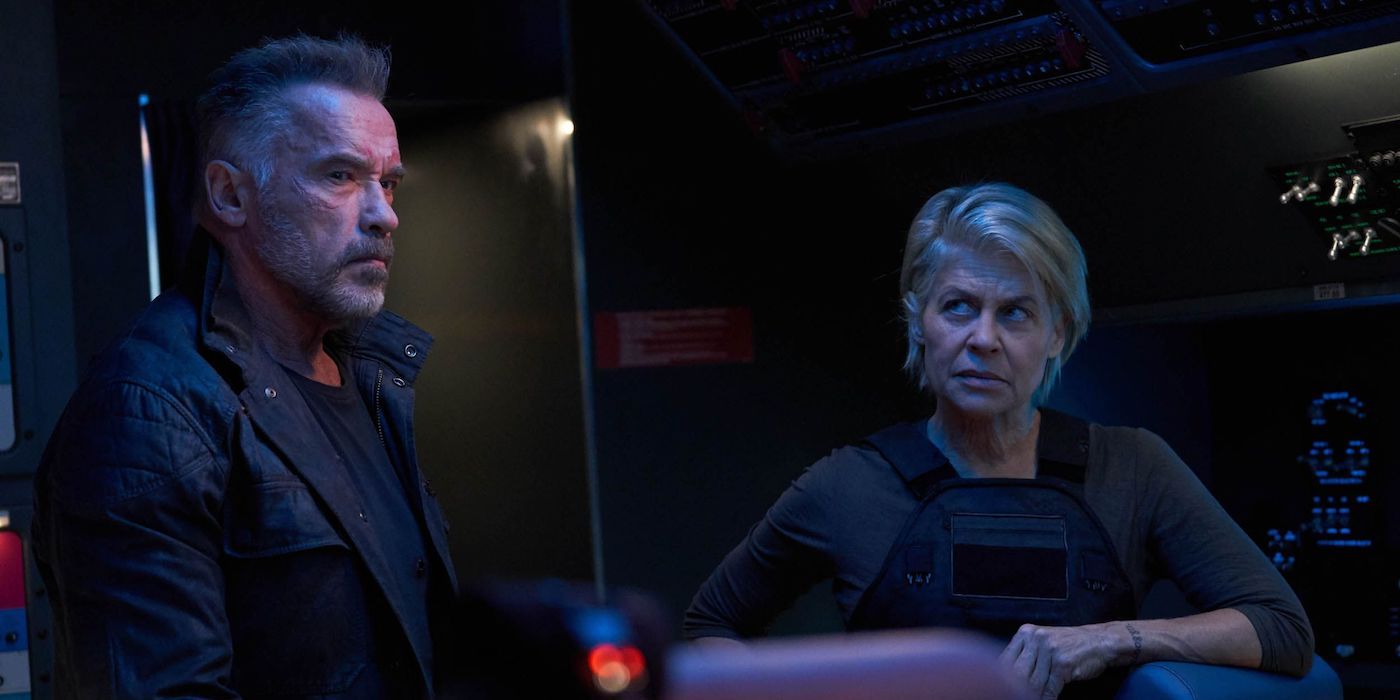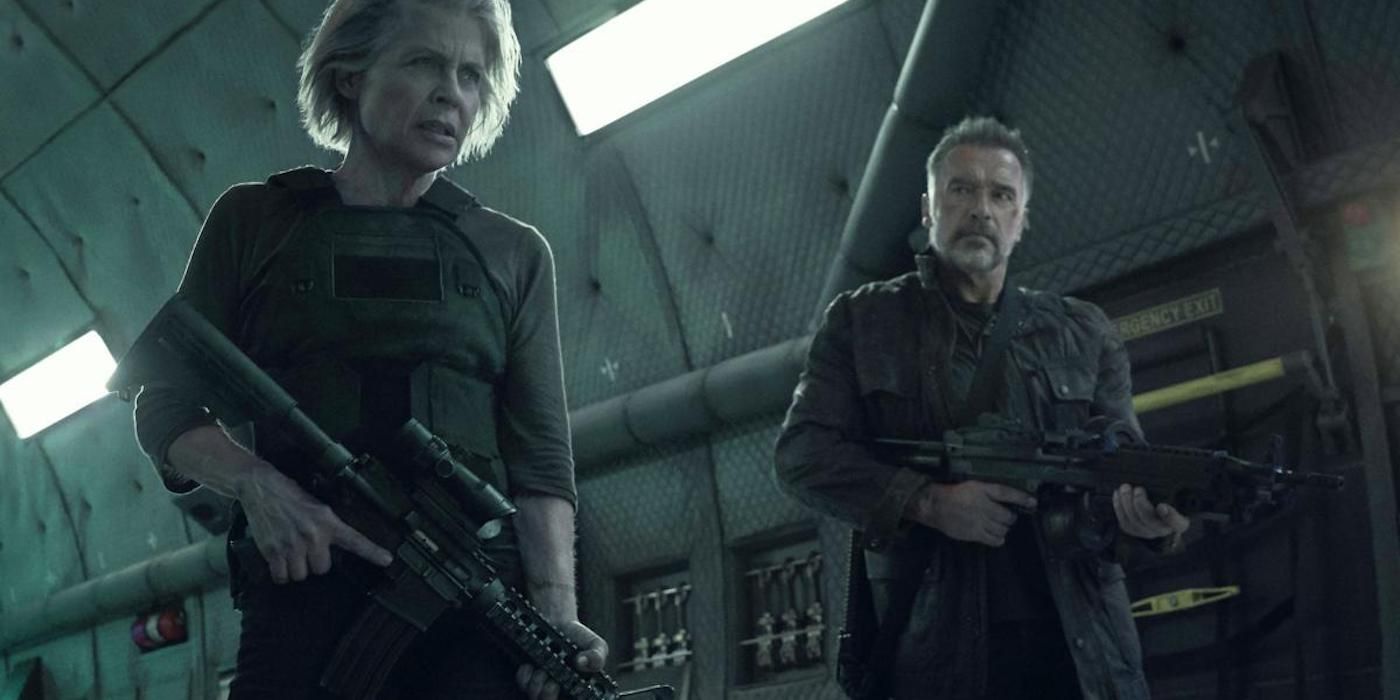WARNING: The following article contains spoilers for Terminator: Dark Fate, in theaters now.
Terminator: Dark Fate once more focuses on an elite killing machine being sent back in time to hunt the leader of a future revolution, with the robotic assassin this time being the Rev-9 (Gabriel Luna). Now, time-travel has always played a major role in the franchise, even in the sequels this film is ignoring, so it's no surprise producer James Cameron wanted this to drive the narrative once more. However, in the main time-travel arc and its big twist, when the truth emerges regarding why the T-800 is alive and kicking, helping Sarah Connor (Linda Hamilton), we realize that anchoring the movie around time-travel also creates Dark Fate's biggest plot hole.
The veil over the T-800, now known as Carl (Arnold Schwarzenegger), is lifted when Sarah brings the augmented Grace (Mackenzie Davis) and the target, Dani (Natalia Reyes), to his cabin in the woods in Laredo, Texas. Throughout the film, the latter duo is curious as to how Sarah found them, which she reveals is through mysterious text messages that gives Sarah GPS locations to go kill Terminators just as they arrive from the future. Sarah doesn't know who sends these messages, which is why Grace uses her tech to track the texts to Carl in Texas. Sarah is incensed, though, when she shows up at his doorsteps, as she wants to kill the Carl for murdering John (Edward Furlong) in 1998, a year after Judgement Day took place and she thought she averted the robot apocalypse.
Eventually, they form an uneasy alliance so they can kill the Rev-9 and save Dani, the new John Connor in an era under the cybersecurity A.I. known as Legion. With his mission over, Carl integrates with a family of migrants. This allows him to finally understand what it means to be human and the pain of loss. As for how he got the GPS coordinates in the first place, Carl confesses that during his trip from the future to '98, temporal rifts opened up, allowing him to see and soak in several futures. Using this information, he knew what data to send to Sarah so she could exact revenge and also get purpose herself after turning into a drunk -- something which would also offer Carl salvation. However, this time-travel knowledge upgrade doesn't make sense, as it defeats the entire purpose of Carl's existence and his assassination.
Obviously, he knew the dystopian future that would happen if he killed John, so with that info from the temporal anomalies which showed him he did belong with mankind, why would Carl still follow through on the kill? Carl's confession basically means he got sentient before he actually terminated John, so for him to know all this and see he'd repent someday, becoming remorseful and trying to help Sarah, it's unfathomable why he would still take the boy away from his mother. Simply put, he knew his act would put him on a path of partnering with Sarah from afar so if he does know right from wrong, again, why pull the trigger?
Furthermore, the concept of the robot turning into an ally by getting fed info from parallel realities is a huge flaw because if Judgement Day was also stopped, these other leftover robots from Carl's timeline that he had Sarah hunting down and killing coming shouldn't be coming back at all. This is because John's death meant Skynet never came to life and in addition to them, Carl's existence also should have been wiped out. This conflict is there for the sake of plot convenience, all meant so Carl could act as Sarah's secret buddy and have a redemption arc for us to forgive him for murdering John.
Directed by Tim Miller and produced by James Cameron, Terminator: Dark Fate stars Arnold Schwarzenegger, Linda Hamilton, Mackenzie Davis, Gabriel Luna, Natalia Reyes and Diego Boneta, in theatres now.



